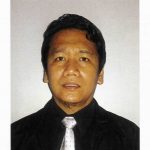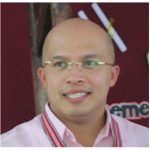Aseaccu 2016 Academic Forum Paper Abstracts
Promoting the Culture of Encounter: A Reflection on the Importance of Family and School for Developing an Ethics of Ecology in Japanese Society (Dr Michael Polito -Sophia University, Tokyo)
The family as a basic unity of society should be the first one to make children aware of ecological education which teaches respect for life and the environment, but the family is aided by the school, another social institution that is responsible in shaping the fundamental cultural and attitudinal development of persons, which in this study, would refer to Japanese society. Formation is schools is of the utmost importance since it teaches not only socially acceptable behavior at an early age but also the development of an ethics of ecology.
This study is anchored on Laudato Si which recognizes the symbiotic relationship and collaborative partnership between the family and the school in Japanese society in relation to the current environmental crisis. The family and the school can be in a better position to develop an ethics of ecology for a nation whose cultural traditions celebrate the harmony and beauty of the natural world.
Dr. Michael Polito joined Sophia University in 2015 and has a Ph.D. in Administration and Supervision of Church and Non-public school Leadership from the Graduate School of Education within The Center for Catholic Leadership and Faith-Based Education at Fordham University.
Indigenous Relational Perspective of Ecological Education and Comprehensive Well-Being (Dr. Inna Reddy Edara, SVD – Fu jen Catholic University, New Taipe City)
The encyclical Laudato Si highlights “integral ecology”, an extensive response to the call to care for our common home, which involves environmental, social, economic, cultural and spiritual ecologies. While this is instrumental in promoting environmental education which increases our awareness in creating a “culture of care” for our common home, many researchers believe that indigenous ecological knowledge systems are equally important or perhaps even more vital in caring for our environment.
This study highlights the significance of a symbiotic relationship which involves people and the ecological system and promotes an understanding of what constitutes their intimate relational dynamic which demands a holistic or global consciousness. The study likewise proposes an integral ecological education model of an “indigenous relational perspective of ecological education and comprehensive well-being” which underscores interconnectedness that brings together the indigenous aspects of environmental knowledge, kincentric ecology, ecological conversion and harmony, and ecological spirituality in creating a “culture of care” for our common home and in promoting our common good, quality of life and well-being.
Fr. Inna Reddy Edara SVD has a Ph.D. in Pastoral Counseling from Loyola University in Maryland, USA. He currently works at Fu Jen Catholic University in Taipei, Taiwan.
Semen vS Samin: the Petition online “change.org” in Perspective of Laudato si’ (Mr. Finsensius Yuli Purnama – Widya Mandala Catholic University, Surabaya)
A cement company in Indonesia goes out of its bounds by pushing for its dubious business interests which in the process exploit nature and deprive human beings as subjects of ecological management. This encroachment on basic human rights and environmentalism has led to protests against the cement plant, which protesters claim destroy and damage ecology and the environment.
This study reveals how protesters particularly women bury their feet in cement boxes as a sign of disapproval and how the Samin community resorted to technology via the internet thru Change.org to voice out their objections. 27, 876 people have already affixed their signatures on the petition to stop the operations of the cement plant in the hope that the Samin people be able to reclaim and maintain their homeland.
Finsensius Yuli Purnama has a Master’s degree in the field of Media and Communications at the University of Airlangga. He is currently a lecturer at the Widya Mandala Catholic University of Surabaya in Indonesia.
A Socio-Theological Discourse on the Land: Laudato Si’ vis-à-vis Indigenous Peoples of the Cordilleras (Dr. Jeoffrey M. Almazan – University of Santo Tomas, manila, and Dr. Francisco Agoot – Saint Louis University, Baguio City)
Cultural minorities, such as Cordillera’s indigenous peoples, should be principal dialogue partners especially when large projects affecting their lands are proposed. For them, their land is a sacred space, a gift from God, and not a commodity that can be bought and sold. Their land speaks of their identity and values as a people and they are the ones who can care for it best. For over two decades, they continue to assert their historical right of self-determination through regional autonomy.
Pursuant to the constitutional mandate, two attempts had been waged to achieve the status of regional autonomy in the Cordillerra. This has led to dispute and failure since the two organic acts had been rejected and were never ratified. This particular study specifically seeks to answer the following questions: What are the underlying reasons for the failure of the 1998 plebiscite vis-à-vis the provisions of the Republic act 8438 and what alternative framework does Laudato Si offer in order to support a new scheme for the Cordillera Autonomous Region?
Dr. Jeofrey Almazan has a Ph.D. in Theology from the University of Santo Tomas, Manila Philippines. He is presently teaching at St. Louis University, Baguio City Philippines.
Dr. Francisco Agoot has a Ph.D. in Educational Management and is currently teaching at St. Louis University, Baguio.


